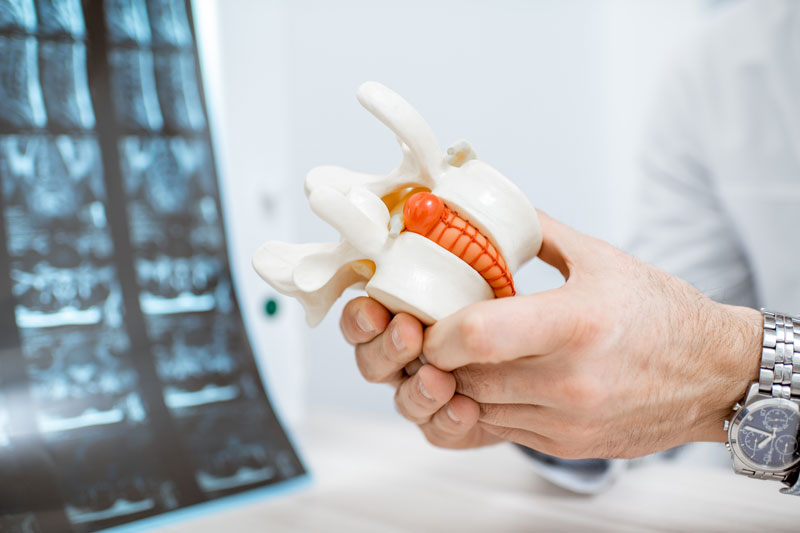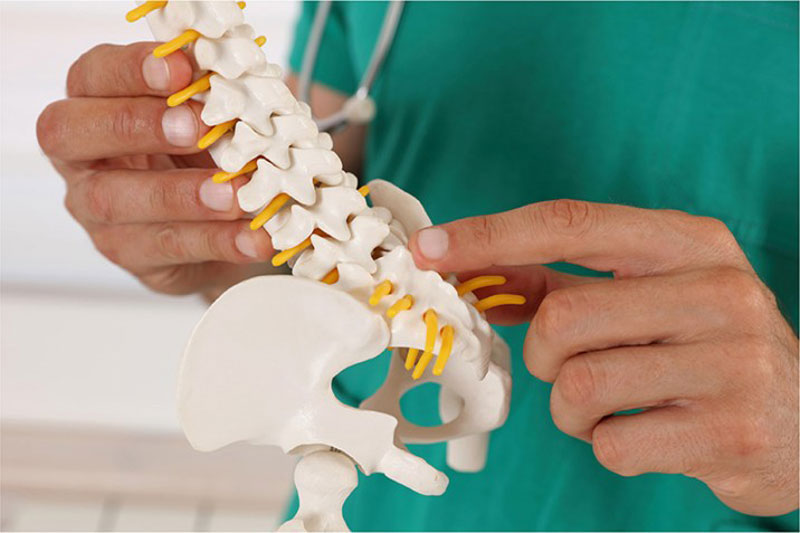What is Occipital Neuralgia?
Occipital neuralgia is a painful disorder caused by injury or compression of these nerves. This damage or compression can occur directly to the nerve or due to previous injuries to adjacent nerves. Injuries to the neck and shoulders, for example, might result in occipital neuralgia.
What Causes Occipital Neuralgia?
All of the causes of occipital neuralgia can be traced back to irritation or inflammation of the occipital nerves. While this condition is not life-threatening, the pain it causes can make daily life extremely difficult.
Whiplash:
Whiplash is a traumatic injury that occurs when the head and neck are forced forward until they approach the end of their range of motion before snapping forcefully back. This motion can injure the neck’s tendons, ligaments, and muscles. It is one of the most common causes of occipital neuralgia.
Head And Neck Injuries:
Other than whiplash, any insult to the occipital nerve might result in occipital neuralgia.
It could happen due to a fall or an injury while playing sports.
Muscle Tension In The Neck:
A persistent forward head position may cause stiff neck muscles. If your profession requires you to stare at a screen or look down frequently, you may develop tight neck muscles that begin to compress one or more occipital nerves.
Arthritis:
The cervical spine, like all other joints in the body, is prone to arthritis. Inflammation caused by wear and tear or autoimmune disorders might cause occipital neuralgia pain.
Gout:
Gout is a rare cause of occipital neuralgia, but it can happen. It is a kind of arthritis caused by uric acid buildup in the joints. This collection can induce irritation and pain.
Diabetes:
Diabetics are more likely to experience headaches and head pain due to vascular damage.
It is because poorly treated diabetes can result in unpredictable blood sugar levels, which damage veins. Although diabetes pain is typically limited to the lower limbs, it can also manifest as occipital neuralgia.
Inflamed Blood Vessels:
It is a rare cause of occipital neuralgia, although it can happen.
Inflamed blood vessels anywhere on the neck or scalp might cause symptoms by pressing on the occipital nerve.
How is Occipital Neuralgia Diagnosed?
Some symptoms of occipital neuralgia are comparable to migraine symptoms. It makes diagnosing occipital neuralgia difficult in and of itself. Because there is no single test that can diagnose this problem, your doctor will do a series of tests to rule out some possibilities and restrict the field.
These tests may include:
- A physical examination
- Neurological testing
- Magnetic resonance imaging (MRI)
- CT scan
Occipital nerve blocks are also utilized as a diagnostic tool as well as a treatment. If an occipital nerve block helps your pain, it can help confirm the diagnosis.
Treatment Options for Occipital Neuralgia
Treatments for occipital neuralgia try to alleviate symptoms while addressing the underlying causes of pain.
1. Exercise:
Fast-paced, hard-hitting exercise is one choice for stress relief, but you may also want to consider slower, more meditative routines like yoga and tai chi.
2. Physiotherapy:
Your physical therapist might provide exercises to improve the muscles that support your shoulder and neck. It can help to offset the consequences of years of hunching over a desk. They can also aid in the release of tension and tight muscles that cause discomfort.
3. Over-The-Counter Drugs:
Nonsteroidal anti-inflammatory medications, such as ibuprofen, can treat pain and inflammation. They may be the key to delivering adequate relief to attend physical therapy sessions or undergo other treatments if taken as advised. Over-the-counter medicines and patches can also be beneficial.
4. Prescription Medications:
Prescription drugs are available to help ease the discomfort of severe occipital neuralgia. These include antidepressants, anti-convulsant medicines, and muscle relaxants.
It should be noted that opioids are not approved for the treatment of chronic pain.
5. Acupuncture:
Acupuncturists use hair-thin needles to open energy channels and release pain-relieving endorphins in specific areas of the body.
Treatments are non-invasive and serve as an excellent supplemental treatment alternative.
6. Consult A Chiropractor:
Chiropractic therapy might help in circumstances where the spinal imbalance is causing pain. A chiropractor can assist to restore spinal equilibrium by using manual techniques or sophisticated instruments.
The mechanical function is how you utilize your body to walk, sit, and move around. Improve your mechanical function with posture training and gait analysis.
7. Occipital Nerve Blocks:
Occipital nerve blocks are a diagnostic tool that can also be used to relieve discomfort. In the afflicted nerve, a numbing agent and a steroid are administered. It relieves pain and inflammation while also diagnosing the source of your pain.
8. Ablation With Radiofrequency:
Radiofrequency ablation (RFA) uses heat to destroy and relieve pain from damaged neurons. The impact of this impairment on pain signals can endure for months.
9. Botox For Pain Relief:
Botox has been shown to help some patients with occipital neuralgia symptoms. Botox is most commonly used to treat headaches and migraines, but there is growing evidence that it may also help cure head pain caused by occipital neuralgia.
10. Look For Surgical Alternatives:
When more conservative treatments have failed, surgery is usually the last choice. If your pain persists and your everyday life suffers, as a result, consult your doctor about procedures that may be beneficial.













